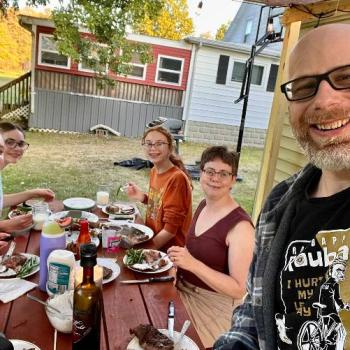
“Wonder is God’s way of getting our attention” – Joan Chittister
“When we wonder, we touch God”, Nontando Hadebe
Of the many modalities I use as a mental health therapist, Eric Erikson’s model of development leads my understanding of the clients I work with on a daily basis. As a pastor, I often and still use John Westerhoff’s developmental theory of faith development.
A Brief Overview of Development
Erik Erikson was a German psychoanalyst who would become famous for his theory on the stages of human development. Another theorist I use interchangeably with Erikson’s theory is Jean Piaget, who was also influential in our understanding of human development. For both men, their theories suggest that children get inspired by their surroundings during the learning process. Much of this inspiration is question asking and is a huge part of human development.
Jim Fowler and John Westerhoff are both theorists associated with faith development. Fowler suggests seven areas of development whereas Westerhoff suggests four. For Westerhoff, there is a lot of space in his theory around questions and the normalcy in questions about our faith. For Fowler, two stages focus a lot on questions, stages, stage 4. individuative-reflective stage and stage five known as the conjunctive stage.
With the works of these four theorists, they demonstrate that questioning is a natural part of secular and spiritual development.
The Philosophy of Wonder – Existentialism
Why is an essential question of our existence and without it, we would not have evolved into the species we have become. Why am I here? Who am I? Where did I come from? Where am I going? There is a whole discipline of philosophy devoted to these questions, existentialism which goes after these questions and the meaning of life.
Who am I? As a therapist and a minister, I have found this to be one of the most important developmental questions one may encounter in their lifetime. A better question is who are you becoming? Nietzsche talked about the fact that we are always in the process of becoming.
Plato is attributed to have said “wonder is the feeling of a philosopher, and philosophy beings in wonder.” In this quote, we get a sense of what wonder is, it is not just a static mindless thing that our eight-year-old does to annoy us, it is a feeling, a drive, a sense of curiosity. “Wonder is a complex emotion involving elements of surprise, curiosity, contemplation, and joy, and is perhaps best defined as a heightened state of consciousness and feeling brought about by something very beautiful, rare, or unexpected—that is, brought about by a marvel” (“The Psychology and Philosophy of Wonder – Neel Burton”).
If we look at the etymology of the word wonder, we gain more insight into the uncontrollable nature of this state of being. Wonder is related to the word marvel or from its specific Proto-Germanic origins, an object of astonishment. In all cases, across the centuries, wonder is seen as an emotional state.
Cultivating Curiosity
As a practice, wonder as an emotion is one that many will need to cultivate. As a mental health therapist, I often run into a poverty of emotional intelligence and maturity. As a society, we tell our children that they need to grow up, that they need to sit still, pay attention, or even subject them to unrealistic standards that breed anxiety, self-doubt, and depression.
Wonder as a practice enhances sensuousness and our ability to enjoy a moment in time. As a practice, it counters or balances feelings of indifference. Life is an adventure, but too often, in the pursuit of growing up and engaging in the next thing, we get myopic, and we lose sight of our curiosity. This gets to the point that when we get to our second half of life, we may have lost our interests and even feel childish if we desire to engage in a practice of wonder. So, we stay in our dead-end job, unhappy, all the while chasing the next best thing.
We can reclaim our sense of wonder by slowing down, stopping to smell the flowers and reignite our childish need for play. Of course, you may not take up dolls at 42(or you might, who cares), but you will reengage in times of self-care. That is what adults call play, self-care. But focusing on you, another spiritual practice deepens your sense of wonder.
A Practice
Consider this quote from the late Thich Nhat Hahn:
“Waking up this morning, I smile. Twenty-four brand new hours are before me. I vow to live fully in each moment and to look at all beings with eyes of compassion.”
How do you see the next moment? Dull, boring, dry? Can you instead notice? Can you notice the play of the child in your space? The desire to play in yourself? Can you be enticed by the wonder of a beautiful sunrise, the smile of a spouse, the way your dog looks at you?
Can you find wonder?
Reference:
The Psychology and Philosophy of Wonder – Neel Burton. (n.d.). Retrieved from https://neelburton.com/2014/12/02/the-psychology-and-philosophy-of-wonder/

















